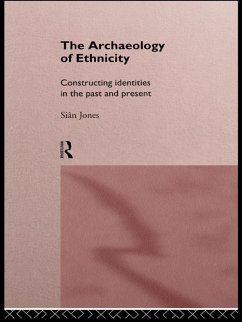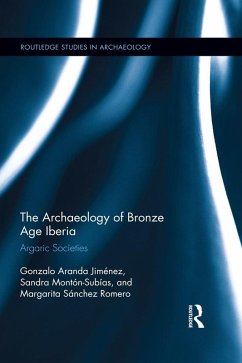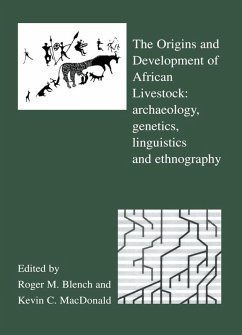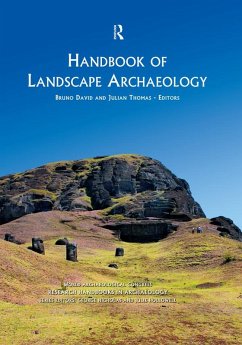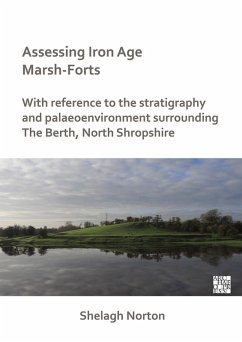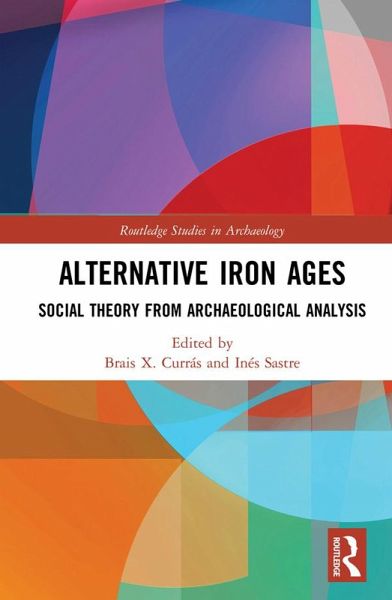
Alternative Iron Ages (eBook, PDF)
Social Theory from Archaeological Analysis
Redaktion: Currás, Brais X.; Sastre, Inés
Versandkostenfrei!
Sofort per Download lieferbar
44,95 €
inkl. MwSt.
Weitere Ausgaben:

PAYBACK Punkte
22 °P sammeln!
Alternative Iron Ages examines Iron Age social formations that sit outside traditional paradigms, developing methods for archaeological characterisation of alternative models of society. In so doing it contributes to the debates concerning the construction and resistance of inequality taking place in archaeology, anthropology and sociology.In recent years, Iron Age research on Western Europe has moved towards new forms of understanding social structures. Yet these alternative social organisations continue to be considered as basic human social formations, which frequently imply marginality and...
Alternative Iron Ages examines Iron Age social formations that sit outside traditional paradigms, developing methods for archaeological characterisation of alternative models of society. In so doing it contributes to the debates concerning the construction and resistance of inequality taking place in archaeology, anthropology and sociology.
In recent years, Iron Age research on Western Europe has moved towards new forms of understanding social structures. Yet these alternative social organisations continue to be considered as basic human social formations, which frequently imply marginality and primitivism. In this context, the grand narrative of the European Iron Age continues to be defined by cultural foci, which hide the great regional variety in an artificially homogenous area. This book challenges the traditional classical evolutionist narratives by exploring concepts such as non-triangular societies, heterarchy and segmentarity across regional case studies to test and propose alternative social models for Iron Age social formations.
Constructing new social theory both archaeologically based and supported by sociological and anthropological theory, the book is perfect for those looking to examine and understand life in the European Iron Age.
We are so grateful to the research project titled "Paisajes rurales antiguos del Noroeste peninsular: formas de dominacion romana y explotacion de recursos" [Ancient rural landscapes in Northwestern Iberia: Roman dominion and resource exploitation] (HAR2015-64632-P; MINECO/FEDER), directed from the Instituto de Historia (CSIC) and also to the Fundaçao para a Ciencia e a Tecnologia [Foundation for Science and Technology] postdoctoral project: SFRH-BPD-102407-2014.
In recent years, Iron Age research on Western Europe has moved towards new forms of understanding social structures. Yet these alternative social organisations continue to be considered as basic human social formations, which frequently imply marginality and primitivism. In this context, the grand narrative of the European Iron Age continues to be defined by cultural foci, which hide the great regional variety in an artificially homogenous area. This book challenges the traditional classical evolutionist narratives by exploring concepts such as non-triangular societies, heterarchy and segmentarity across regional case studies to test and propose alternative social models for Iron Age social formations.
Constructing new social theory both archaeologically based and supported by sociological and anthropological theory, the book is perfect for those looking to examine and understand life in the European Iron Age.
We are so grateful to the research project titled "Paisajes rurales antiguos del Noroeste peninsular: formas de dominacion romana y explotacion de recursos" [Ancient rural landscapes in Northwestern Iberia: Roman dominion and resource exploitation] (HAR2015-64632-P; MINECO/FEDER), directed from the Instituto de Historia (CSIC) and also to the Fundaçao para a Ciencia e a Tecnologia [Foundation for Science and Technology] postdoctoral project: SFRH-BPD-102407-2014.
Dieser Download kann aus rechtlichen Gründen nur mit Rechnungsadresse in A, B, BG, CY, CZ, D, DK, EW, E, FIN, F, GR, HR, H, IRL, I, LT, L, LR, M, NL, PL, P, R, S, SLO, SK ausgeliefert werden.







